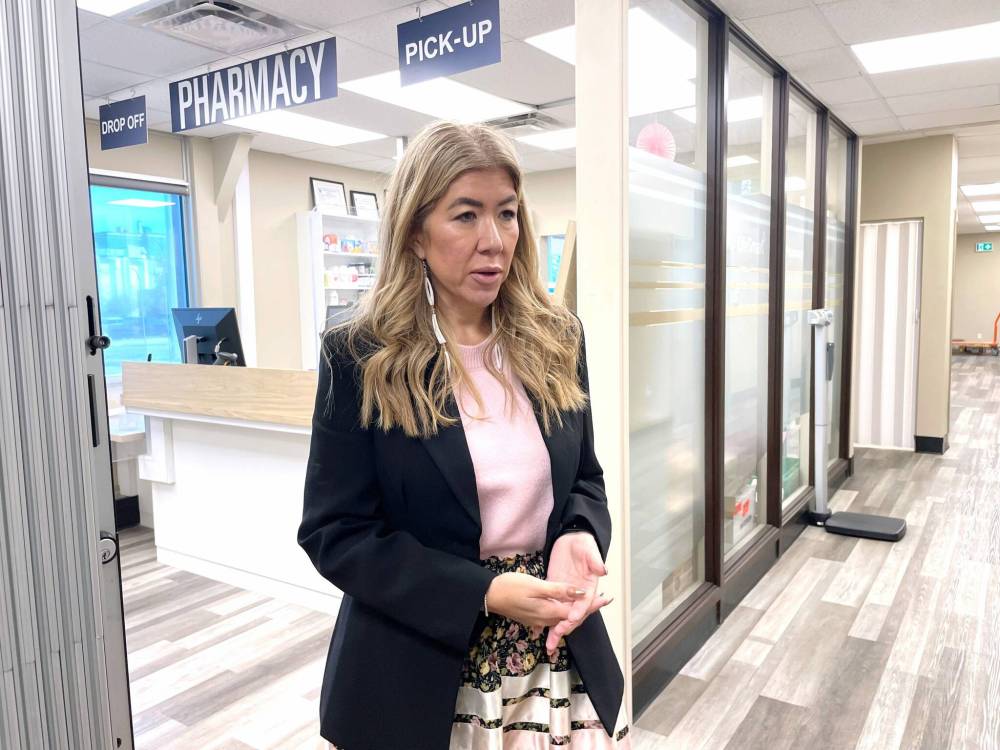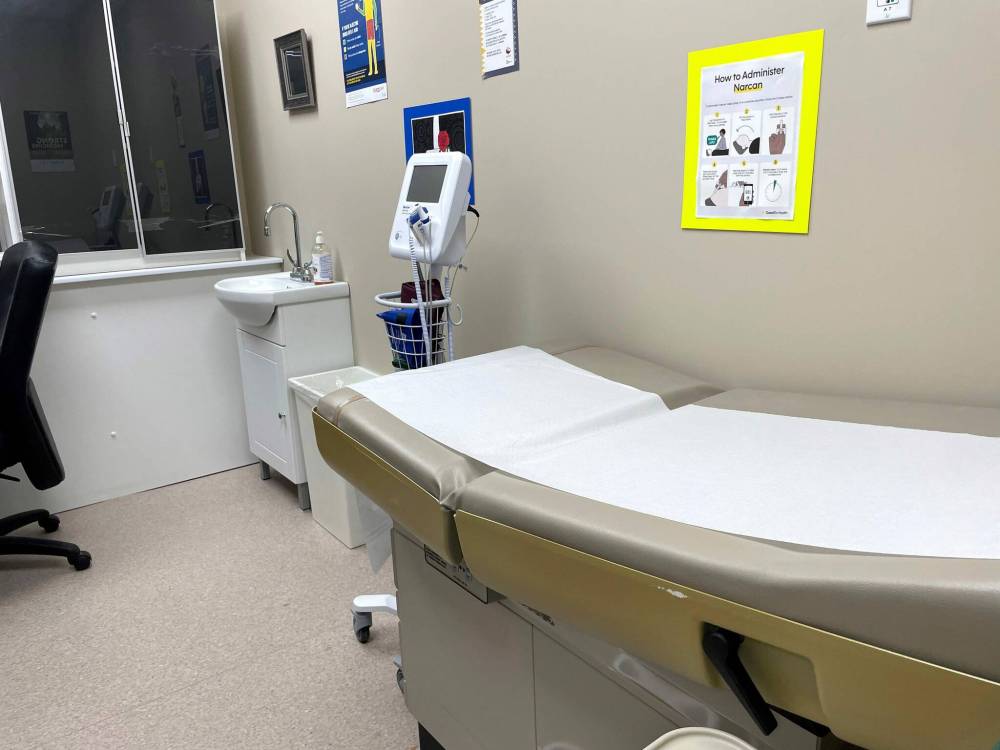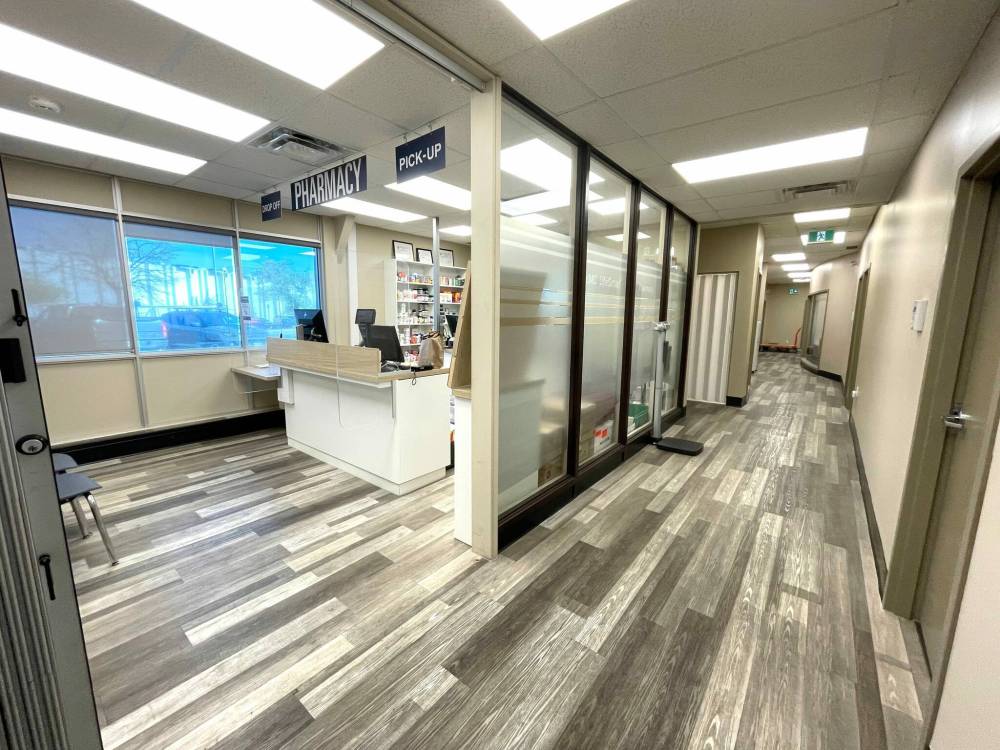Indigenous team operating mobile addictions-treatment clinic for Island Lake-area First Nations
Advertisement
Read this article for free:
or
Already have an account? Log in here »
To continue reading, please subscribe:
Monthly Digital Subscription
$0 for the first 4 weeks*
- Enjoy unlimited reading on winnipegfreepress.com
- Read the E-Edition, our digital replica newspaper
- Access News Break, our award-winning app
- Play interactive puzzles
*No charge for 4 weeks then price increases to the regular rate of $19.95 plus GST every four weeks. Offer available to new and qualified returning subscribers only. Cancel any time.
Monthly Digital Subscription
$4.99/week*
- Enjoy unlimited reading on winnipegfreepress.com
- Read the E-Edition, our digital replica newspaper
- Access News Break, our award-winning app
- Play interactive puzzles
*Billed as $19.95 plus GST every four weeks. Cancel any time.
To continue reading, please subscribe:
Add Free Press access to your Brandon Sun subscription for only an additional
$1 for the first 4 weeks*
*Your next subscription payment will increase by $1.00 and you will be charged $16.99 plus GST for four weeks. After four weeks, your payment will increase to $23.99 plus GST every four weeks.
Read unlimited articles for free today:
or
Already have an account? Log in here »
A three-person team of Indigenous health care professionals is leading a new mobile addictions clinic meant to reach struggling people in remote northern reserves.
A clinic on Ellice Avenue near the airport will serve as the hub for nurses who will travel to the Anisininew Nations in the Island Lake region, including Garden Hill, Red Sucker Lake, St. Theresa Point and Wasagamack for weeks at a time to deliver opioid agonist therapy — prescribed medications to reduce cravings and withdrawal symptoms — and other in-community addictions treatment.
Although the Manitoba Anisininew Mobile Addiction Network clinic’s grand opening was Monday, addiction services manager and nurse Kirsty Muller said they began flying out weeks ago, after people from remote communities displaced by wildfires returned home and there was a need for continued treatment.

RUTH BONNEVILLE / FREE PRESS
Kirsty Muller said there is already a wait list of about 60 people in Garden Hill alone.
“Sometimes coming to the city is very triggering for people, and people should be able to access all services, no matter where they live,” Muller said.
“Being able to provide services in community for this population is extremely important to us, so that’s why we’re going to them, instead of them having to come to us.”
Nurses will split their time equally between patients in Winnipeg who can access the Ellice Avenue clinic and mobile clinics across Island Lakes. Most treatment involves administering suboxone, a medication for treating opioid addiction, and sublocade, a longer-term injectable treatment.
“We’re right across from Perimeter Airlines,” Muller said. “We’re easy to access for people that are flying in or flying out, so if they need to access services before they go home, or when they come down.”
While they are also trained to connect people to detox treatments, mental-heath services and other resources, they are largely seeing patients struggling with opioid addictions, Muller said.
There is already a wait list of about 60 people in Garden Hill alone, she said.
In St. Theresa Point, fast access to addictions treatment is increasingly necessary, said band councillor Vernon Monias.
“It’s really, really destroying our youth… and with this kind of program being introduced, it’ll help a lot of a lot of our youth from back home,” he said.

RUTH BONNEVILLE / FREE PRESS
Inside one of several medical assessment rooms in the newly opened Anisininew Okimawin and Four Arrows Regional Health facility.
Muller said previous attempts to access funding through provincial and federal channels weren’t successful, and while the small team is fully funded by the Island Lakes region’s Four Arrows Regional Health Authority for the rest of the fiscal year, they will need further funding to be able to ensure the program continues.
“Right now, it’s getting it up and running, but what I would hate is to have a very successful program and develop relationships with these members and community members and offer these services, and then for us to have to take it away and not be able to financially, physically support it,” she said.
Shared Health runs the Manitoba Opioid Support and Treatment Program, a team of medical professionals who offer opioid agonist therapy medications, counselling and other harm-reduction tools.
The team was recruited by the Manitoba Anisininew Mobile Addiction Network in May, and has begun travelling to Garden Hill for three days at a time every second week, said Michelle LaFrenais, a nurse and case manager for MOST.
“There’s somebody there every week now, (but) even in saying that, the wait list is immense. We’re hoping, between their team and our team, we can start getting people started fast… because today’s opportunity might be a missed opportunity tomorrow.”
MOST is working on expanding its service to the other three Island Lake communities.
LaFrenais said there is a treatment program available that includes a monthly fly-in to Winnipeg, but there are many potential barriers, including flight weather delays and patients not being able to leave their families once a month.

RUTH BONNEVILLE / FREE PRESS
Inside the newly opened Anisininew Okimawin and Four Arrows Regional Health facility.
“People with families, kids, (the) safety of their own community, they appreciate so much that we are coming out there,” she said.
Opioid agonist therapy is the current standard of care for opioid use disorders in Manitoba, because it is able to quickly reduce severe withdrawal symptoms for a short time, allowing the patient a chance to seek long-term treatment.
In July, Siloam Mission began offering the treatment in Winnipeg.
malak.abas@freepress.mb.ca

Malak Abas is a city reporter at the Free Press. Born and raised in Winnipeg’s North End, she led the campus paper at the University of Manitoba before joining the Free Press in 2020. Read more about Malak.
Every piece of reporting Malak produces is reviewed by an editing team before it is posted online or published in print — part of the Free Press‘s tradition, since 1872, of producing reliable independent journalism. Read more about Free Press’s history and mandate, and learn how our newsroom operates.
Our newsroom depends on a growing audience of readers to power our journalism. If you are not a paid reader, please consider becoming a subscriber.
Our newsroom depends on its audience of readers to power our journalism. Thank you for your support.



